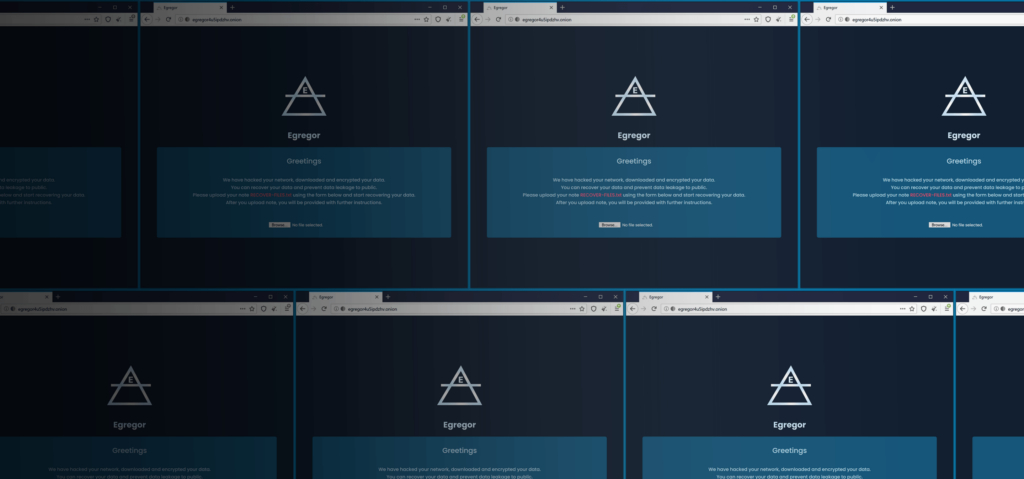Protezione dell'identità ibrida
Categorie
- Backup e ripristino di Active Directory (63)
- Sicurezza di Active Directory (215)
- Sicurezza AD 101 (17)
- Strumenti della comunità (19)
- Modernizzazione degli elenchi ( 9)
- Dal fronte ( 69)
- Protezione dell'identità ibrida (68)
- Catalogo degli attacchi all'identità ( 29)
- Rilevamento e risposta alle minacce all'identità ( 144)
- La nostra mission: essere una forza per il bene (14)
- Purple Knight (5)
- Università Semperis (2)
- Il punto di vista del CISO ( 16)
- Ricerca sulle minacce (68)

Previsioni sulla protezione ibrida dell'identità (HIP) per il 2021
- Thomas Leduc
Il 2020 è stato un anno estremamente dirompente in tutto il mondo. Sebbene la sicurezza informatica possa essere stata un rumore di fondo per un mondo concentrato su questioni sanitarie e finanziarie, i diffusi attacchi informatici hanno lasciato riverberi che si faranno sentire per gli anni a venire. Abbiamo chiesto ai relatori esperti della recente Hybrid Identity Protection (HIP) Conference di condividere un breve sguardo a ciò che è accaduto nel 2020 e a ciò su cui si concentreranno nell'anno a venire, come...

L'attacco Ransomware Egregor a Kmart ricorda che Active Directory deve essere protetto e recuperabile
- Darren Mar-Elia | Vicepresidente dei prodotti
L'ultimo attacco di ransomware-as-a-service lascia il noto rivenditore Kmart con interruzioni di servizio e una Active Directory compromessa. Dopo il "ritiro" del ransomware Maze, avvenuto il mese scorso, molti dei suoi affiliati sono passati al nuovo arrivato, Egregor. Il nome deriva da un termine occulto che indica l'energia o la forza collettiva...

La posta in gioco è più alta nel settore sanitario: Combattere il crimine informatico durante una pandemia
- Gil Kirkpatrick
Nel settore sanitario, i problemi di sicurezza informatica hanno conseguenze che vanno ben oltre la perdita di dati. Recentemente, l'FBI e altre agenzie federali hanno avvertito di una minaccia credibile di "aumento e imminenza della criminalità informatica" per gli ospedali e i fornitori di servizi sanitari statunitensi. I gruppi criminali prendono di mira il settore sanitario per compiere "furti di dati...

Una nuova indagine rivela pericolose lacune nei piani di gestione delle crisi
- Thomas Leduc
Quando arriva una tempesta, chi è più preparato è quello che la affronta meglio. Per l'IT, questa tempesta è digitale, una raffica di cyberattacchi che si abbatte abitualmente sulle coste di Microsoft Active Directory (AD). AD è un bersaglio ghiotto e tutti sappiamo perché....

Riprendete le chiavi del vostro regno con l'ultima versione di Semperis Directory Services Protector
- Darren Mar-Elia | Vicepresidente dei prodotti
Active Directory è fondamentale per tutto ciò che fate e il nuovo obiettivo numero 1 per gli aggressori. Poiché non è stato originariamente costruito tenendo conto delle minacce odierne, Active Directory è pieno di punti deboli e configurazioni rischiose di cui gli aggressori si avvantaggiano facilmente. Noi di Semperis siamo entusiasti di annunciare la nuova versione di Directory Services Protector (DS Protector) e le potenti funzionalità che include per rilevare vulnerabilità pericolose, intercettare...

Semperis introduce strumenti per migliorare la resilienza della sicurezza di Windows Active Directory
- Byron Acohido
Il ransomware continua a essere un'impresa criminale altamente redditizia. I gruppi di hacker di ransomware hanno estorto almeno 144,35 milioni di dollari alle organizzazioni statunitensi tra gennaio 2013 e luglio 2019. Questa è la cifra esatta recentemente rivelata dall'FBI - il danno reale è quasi certamente molto più alto, dato che solo una parte dei cyber...

Protezione della password di Azure AD: Il servizio di sicurezza cloud di cui la vostra Active Directory ha bisogno adesso
- Sean Deuby | Tecnologo principale
Aggiornato: Azure AD Password Protection è diventato generalmente disponibile il 2 aprile 2019. Il servizio è in gran parte uguale a quello presentato in questo post, con i seguenti aggiornamenti: Il limite di due proxy è stato eliminato. Quando si registra il proxy e la foresta Active Directory, sono ora disponibili 3 modalità di autenticazione. Due...

Come ci si protegge dai ransomware?
- Giuseppe Carson
Articolo di Joseph Carson, Chief Security Scientist di Thycotic. Il "ransomware" è in aumento grazie agli "attacchi di phishing mirati" e viene utilizzato per ricattare finanziariamente e avvelenare o corrompere i dati. Nessuno è escluso da queste minacce e nessuna azienda o individuo è troppo piccolo per essere un bersaglio....



